We are a unique specialty…
You may have 2 insurance types that cover your eye care needs: medical and vision. Insurance regulations prohibit us from billing both on the same date of service.
Our doctor will bill the most appropriate insurance type based on the signs, symptoms and complaints during your visit. Applicable fees are due on the date of service.
Eyes without a condition or disease
*Patients without a history of medical issues
*Covered by vision insurance OR out of pocket if the patient doesn’t have vision insurance
New Patients $100.00
Established Patients $90.00
Eyes with a condition or disease
*Patients with a condition or disease, including but not limited to, diabetes, cataract, history of cataract surgery/implant, glaucoma, floaters, dry eye, retina conditions, etc.* Covered by medical insurance which may result in out of pocket expenses, including but not limited to, copays, deductible and refraction, if performed, during the same visit. Patients may also opt to return for the glasses prescription on a different day to use applicable vision insurance. It is the patient’s responsibility to inform the provider if they wish to return for this service.
*Our charge for a refraction if performed during a medical exam:
$50.00
At the Laurel Eye Clinic, our physicians provide the best in personalized, comprehensive eye care and eye exams for your entire family. We know it is important to be thorough- that’s why we use state-of-the-art technology in our eye exams that can uncover hidden, symptomless, potentially sight-threatening eye disorders and diseases that are not found by a simple vision screening. If you live in Western or Central Pennsylvania, and would like to schedule an eye exam at one of our eleven conveniently located offices, call our office at (800) 494-2020.

Why are eye exams are important?
Routine eye exams are absolutely essential in not only maintaining clear vision but to also protect the health of your eyes. Eye examinations give our specialists an opportunity to detect and inform you about eye disorders such as glaucoma, cataracts, and diabetic retinothapy, as well as report on general health conditions such as diabetes and high blood pressure. To allow proper treatment, early detection of eye conditions is critical.
Who should receive an eye examination?
Eye examinations are an important part of health maintenance for everyone. Adults should have their eyes tested to keep their prescriptions current and to check for early signs of eye disease. Eye exams for children play an important role in ensuring normal vision development and allowing for academic achievements that can be hampered by vision problems. Vision is closely linked to the learning process. Children with undetected vision problems often will have trouble with their schoolwork. Many times, children will not complain of vision problems simply because they don’t know what “normal” vision looks like.
Why vision screenings are no substitute for Comprehensive Eye Exams?
Eye exams that are performed by a school nurse or your employer are not the same as a comprehensive eye exam given by a certified optometrist. An optometrist will screen your vision thoroughly for eye and other diseases that can lead to vision loss. Treating these complications early is an essential reason to visit your eye doctor on a regular basis. An eye exam is a series of tests performed by an optometrist assessing one’s ability to focus on and recognize objects within a field of vision as well as other tests and examinations related to the eyes.
What should you expect during a Comprehensive Eye Exam?

Since the eyes are a part of the body, they can be affected by seemingly unrelated health conditions. We must know about your general health and your medications including nonprescription medications prior to examination.
Preliminary testing may include evaluation of specific aspects of visual function and eye health such as depth perception, color vision, eye muscle movements, peripheral or side vision, and the way your pupils respond to light. External examination of the eye includes evaluation of the cornea, eyelids, conjunctiva and surrounding eye tissue using bright light and magnification.
Evaluation of the lens, retina and posterior section of the eye may be done through a dilated pupil to provide a better view of the internal structures of the eye. Measurement of pressure within the eye (tonometry) is also performed.
Visual acuity measurements evaluate how clearly each eye is seeing. As part of the testing, you are asked to read letters on distance and near reading charts. The results of visual acuity testing are written as a fraction such as 20/40.
Refraction is conducted to determine the appropriate lens power needed to compensate for any refractive error (nearsightedness, farsightedness, or astigmatism). Using an instrument called a phoropter, your optometrist places a series of lenses in front of your eyes and measures how they focus light using a handheld lighted instrument called a retinoscope.
Assessment of accommodation, ocular motility and binocular vision determines how well the eyes focus, move and work together. In order to obtain a clear, single image of what is being viewed, the eyes must effectively change focus, move and work in unison. This testing will look for problems that keep your eyes from focusing effectively or make using both eyes together difficult. Evaluating the way your eyes work together and individually can tell us if the nerves and muscles controlling your eyes are working properly or require more investigation.
Additional testing may be needed based on the results of the previous tests to confirm or rule out possible problems, to clarify uncertain findings, or to provide a more in-depth assessment. Digital documentation of the front and/or inside of the eyes may be necessary if there are diseases or disorders that need to be reviewed and compared at a later date.
At the completion of the eye examination, your optometrist will assess and evaluate the results of the testing to determine a diagnosis and develop a treatment plan. He or she will discuss the nature of any visual or eye health problems found with you and explain available treatment options. In some cases, referral for consultation with, or treatment by, another optometrist or other health care provider may be indicated

